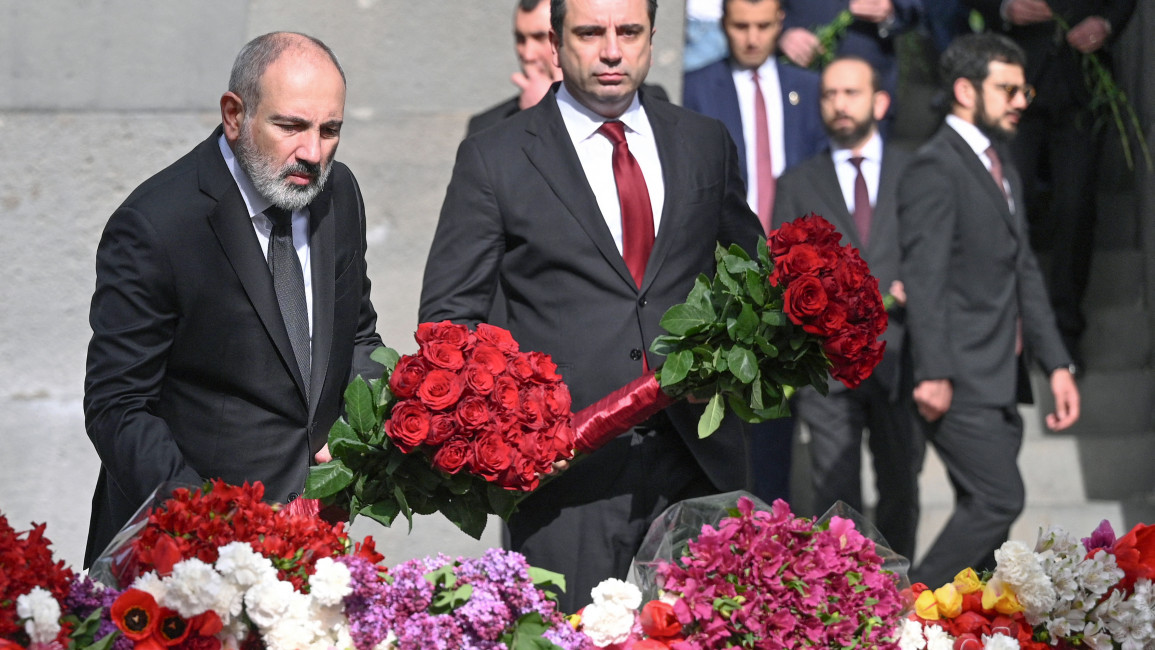Armenia blasts modern 'ethnic cleansing' as it commemorates WWI mass killings
Armenia on Wednesday said it had faced modern-day "ethnic cleansing" as it commemorated Armenian Genocide Remembrance Day, a national holiday marking the World War I-era mass killings of ethnic Armenians by Ottoman forces.
The exodus of more than 100,000 ethnic Armenians from the Nagorno-Karabakh region last autumn following a lightning Azerbaijani offensive hung over this year's events in the capital Yerevan.
"In 2020-2023, we faced new manifestations and consequences of the policy of ethnic cleansing," Armenia's foreign ministry said in a statement.
"More than 150,000 Armenians were... forced to leave their historical homeland because of war, xenophobia, crimes based on identity," it said, referring to the conflict with Azerbaijan for control of Nagorno-Karabakh.
On Tuesday night, thousands had carried torches through the streets of Yerevan to commemorate victims of the 1915-1918 killings by Ottoman authorities -- seen as a genocide by Armenia and several other countries, but fiercely rejected by Turkey.
They wore black t-shirts with a printed picture of Mount Ararat on them -- the country's main national symbol which lies in modern-day Turkey.
Up to 1.5 million Armenians were killed when Ottoman authorities rounded them up en masse and either massacred them or sent them on death marches into the desert, deprived of food and water.
Turkey says around 300,000-500,000 Armenians died, and just as many ethnic Turks, in civil strife after Armenians living in the Ottoman Empire rose up and sided with invading Russian forces.
Russia, the United States and several European countries recognise the killings as a genocide.
In Armenia, the modern-day conflict with Azerbaijan -- a close ally of Ankara that shares cultural ties with Turkey -- is often tied into a historical narrative dating back to the Ottoman period.
In a statement on Wednesday, Armenian Prime Minister Nikol Pashinyan called on his country to focus on building a "competitive and legitimate" nation today, instead of being haunted by historical trauma.
"The commemoration of martyrs must symbolise to Armenians not a lost Motherland, but the one we have found -- the Republic of Armenia," Pashinyan said Wednesday in a statement.



